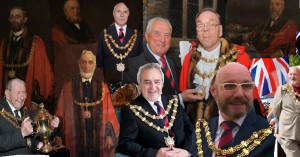
Bridgwater has had a Mayor since 1468 and during those years the functions and powers of the Mayors have changed significantly. Any one of the 16 elected Bridgwater Town Councillors can become Mayor by simple majority vote of the Town Council at the Annual Meeting. However, being Mayor means that person has to dedicate a year of their life to the responsibility. In order to prepare future members for this role Town Council Leader Brian Smedley instigated a review of the Mayoralty to explain why we have a Mayor, what we want from a Mayor in the 21st century, how we fund that and how we ensure the role is accountable. The report was passed unanimously at the Full Council meeting of 10th March 2016.
What’s a Mayor?
Today there are 2 distinct types of Mayor.

An ‘Elected Mayor’ with executive powers – such as the Mayor of London (introduced 2000) or of Bristol (who earns £66,000) – who stand on a political platform and are elected by the people in order to lead the council and carry out those policies. There are 18 of these – largely Metropolitan Boroughs or Unitary Authorities. The smallest is Mansfield (pop 100,000)
A ‘Ceremonial Mayor’ is a figurehead chosen by and from amongst fellow council members in order to carry out a largely apolitical civic role. Bridgwater falls into this category. In places like Bristol and London where the Mayor is an elected ‘political’ leader there is an additional ceremonial role for a Lord Mayor. The Ceremonial Mayor is considered the First Citizen of the authority.
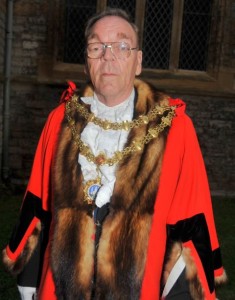
Historically a Mayor has meant the most important official in any local administration. However, because the role came from a pre-democratic tradition it has, like the monarchy, evolved into one today of something largely ceremonial and promotional encompassing the received and perceived traditions of state and community. In Bridgwater the Mayor’s powers are exclusively ceremonial, chairing meetings, officiating at functions and are facilitated by an allowance approved by Council.
Getting to where we are
In pre-feudal days the Mayor equivalent in Saxon England (pre-1066) was the Reeve-who was essentially a manager of a defined area. These were largely chosen by the locals and regarded as the Kings representative in the locality to enforce a common law and keep the peace.
When the Normans conquered England in 1066 they introduced feudalism and managed this through a system of ‘Bailiffs’ which were by now appointed by the local (Norman) Lord of the Manor. The Bailliff was the key local figure for enforcing Feudalism in his ‘Bailiwick’ and was the recognised local administrator charged with enforcing the Norman King’s law in a defined area.
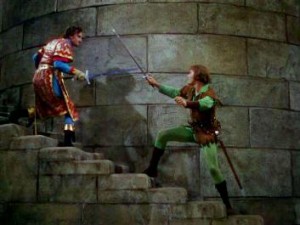
A similar system was introduced for the new Norman counties where a ‘shire-reeve’ (or Sherriff) had a similar function. These still exist today but again are basically a ceremonial officer of the Crown in a given territory.
The next historical movement from feudalism to capitalism was defined by the growth of strong local towns or boroughs which saw a change of power from the landed ‘feudal’ gentry to the urban burghers or ’bourgeoisie’. This was reflected by the increased acquisition of powers by the towns and their ‘guilds’ that developed to represent the growing power of commerce in the towns. The powers of the towns were defined by the granting of ‘Charters’ by the King. Bridgwater has 12 Charters granted between 1200 and 1684
The word Mayor and Major derives from the Latin word Magnus meaning ‘great’ and was brought to this country by the Normans having existed on the continent since the fifth century. The first English Mayor was the Mayor of London appointed in 1189 by Richard 1.
Bridgwater’s Charters
John – 26 June 1200 – Granted to William Briwere to make Bridgwater a free Borough and its men free burgesses with a market and fair and a guild, presided over by two stewards elected annually and assisted by a bailiff.
Edward II March 5th 1317 Edward III in 1371 and Henry IV in 1400 all reconfirmed these previous rights.
Edward IV June 18 1468 Bridgwater received official permission to have a Mayor (as well as bailiffs and burgesses) – a guild market and a hause which granted toll on the bridge for plough or cart, weekly markets and a 4 day Fair. There were 4 salaried Town officials: Mayor (£5) Recorder (20 shillings) Water Bailiff (15s4d) Town Clerk (26s 8d).
Bridgwater’s first Mayor was John Kendall.
Further charters reconfirmed these powers during the new Tudor period coming from Henry VII in 1488 &1495 and his son Henry VIII in 1512 & 1539 plus Mary in 1554.
Under Elizabeth I in 1587 the town was granted election of Mayor plus 2 Aldermen (Aldermen were essentially self-perpetuating roles of ‘elder-men with experience’ -of often ‘financial interest’ and who maintained a hereditary place on the council) and a common council of 18 Burgesses – who were in fact chosen by the Mayor, Recorder and Aldermen and who appointed a ‘Common Clerk ‘.
At this point the post of Lord Lieutenant was introduced as the monarch’s official representative in each county – essentially as the military commander, notably at the time of the threat of the Spanish Armada, and later commanders of the militia and the territorial reserve but ultimately ceremonial. Lord Lieutenants are honorary and are appointed – usually for life – by the monarch (most recently defined by the Lieutenancies Act of 1997). They are now totally ceremonial and unpaid, but receive allowances. Currently the Lord Lieutenant of Somerset is Mrs Annie Maw (from Pilton and a master of the Somerset Hunt and Wells Cathedral guide) – who succeeded Lady Gass (1998-2015) of the landowning Acland Hood family
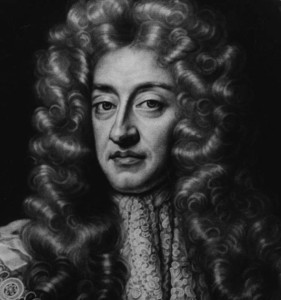
During the Stuart period James 1 in 1614 awarded specific rights to hold St Matthew’s Fair. Charles 1 in 1628 increased the Common Council from 18 to 24 and finally Charles II in 1683 gave Mayor, Aldermen, and Capital Burgesses the power to choose “2 discreet men” for Burgesses of Parliament.
The only king to visit Bridgwater for the next 300 years was King James II in the aftermath of the Battle of Sedgemoor in 1685 when he rode through in victory over the rebels and ordered them to be hung, drawn, quartered or deported.
19th & 20th Century Modernisations
Things stayed this way until the process was reviewed during the 19th century: tentatively in 1836 in the wake of the Great Reform Act, which extended voting rights. A Bridgwater Corporation was formally established but after a period often filled with electoral corruption (particularly in Bridgwater, which was struck off the register for several years in 1868) and regularised in the Municipal Corporations Act of 1882 -Section 15 of which superseded all previous legislation, introduced the power of ‘bye-laws’ and regulated the election of Mayors, saying they had to be “a fit person elected annually by the council of the Borough from among the aldermen or councillors or persons qualified to be such. His term of office was one year, but he is eligible for re-election. He may appoint a deputy to act during illness or absence, and such deputy must be either an alderman or councillor. A Mayor was ex officio a justice of the peace for the borough during his year of office and the next year. He received such remuneration as the council thought reasonable.”
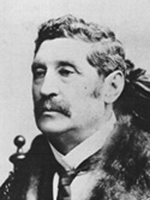
Throughout the 20th century the office of Mayor did not entail any important administrative duties, and instead was generally regarded as an honour conferred for local distinction, long service on the Council, or for past services. The Mayor was expected to devote much of their time to civic, ceremonial, and representational functions, and to preside over meetings as chairman of the council.
These provisions were repealed in the Local Government Act of 1974 which abolished ‘aldermen’ and other medieval trappings but also the Borough status of places like Bridgwater replacing it locally with Sedgemoor District Council which became the new executive authority. The remnants of Bridgwater’s historic power was reflected in a token and toothless redefinition of the elected district councillors for the area of the town being entitled ‘Charter Trustees’ with the power solely to maintain the Mayoral tradition from amongst themselves whilst all budgets were overseen by Sedgemoor.
Mayors are not appointed to district councils which do not have borough status. Their equivalent place is taken by the Chairman of Council, who undertakes exactly the same functions and is, like a Mayor, the civic head of the district whilst the political head of a district or a town is a separately elected Leader, drawn from the controlling group, a role which allows the office of the Chairman or Mayor to be seen as apolitical and ceremonial.

21st Century Mayors
Since reforms introduced in 2000, 18 English local authorities have voted to have Directly Elected Mayors who act as political Leader, whilst other ancient boroughs, such as Bridgwater on 7th March 2003, regained Town Council status by the device of ‘Statutory Instrument No 610’ which conferred powers equivalent to a parish.
To read Councillor Smedley’s recommendations for the future of the Mayoralty click here.
